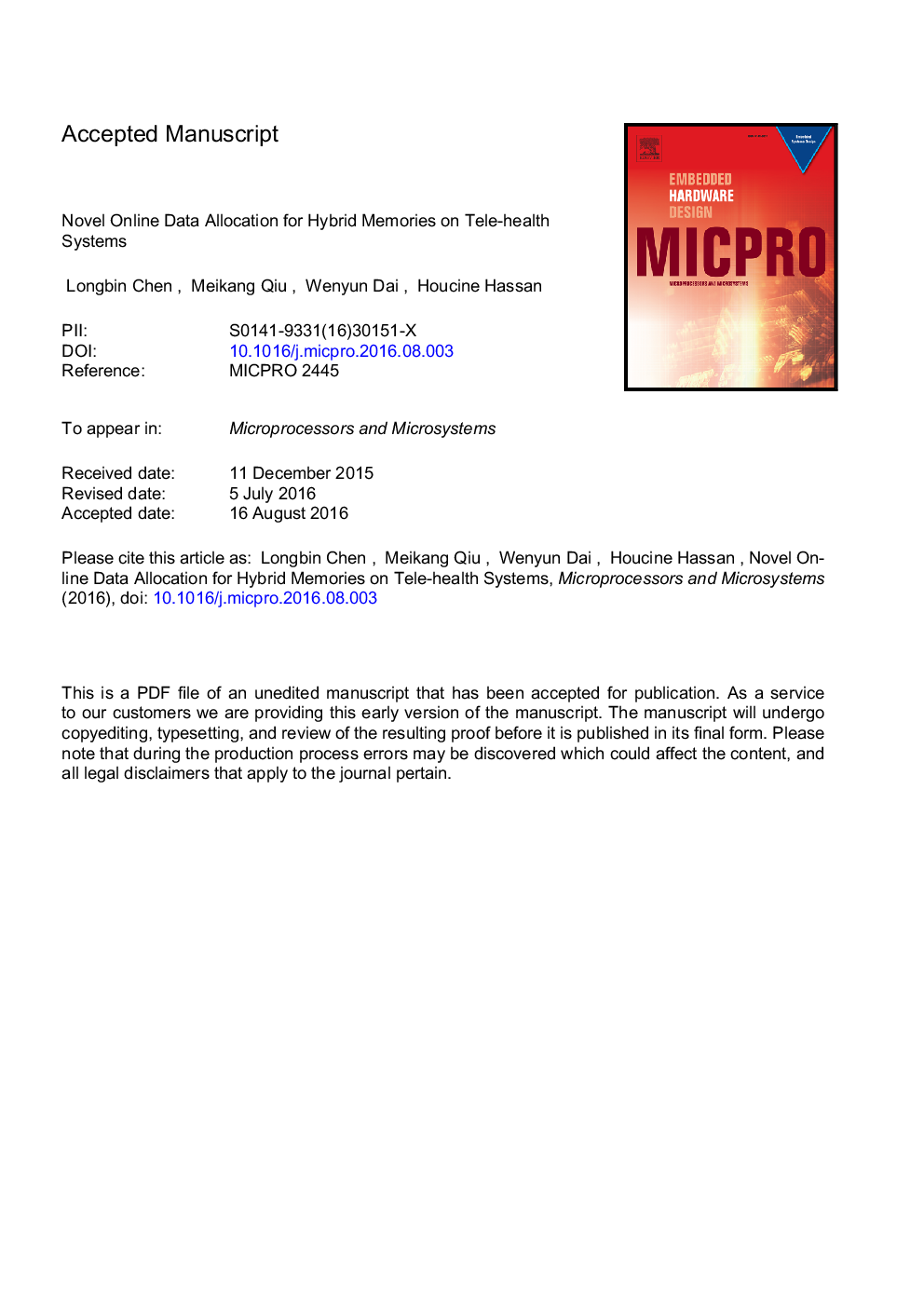| Article ID | Journal | Published Year | Pages | File Type |
|---|---|---|---|---|
| 4956663 | Microprocessors and Microsystems | 2017 | 17 Pages |
Abstract
The developments of wearable devices such as Body Sensor Networks (BSNs) have greatly improved the capability of tele-health industry. Large amount of data will be collected from every local BSN in real-time. These data is processed by embedded systems including smart phones and tablets. After that, the data will be transferred to distributed storage systems for further processing. Traditional on-chip SRAMs cause critical power leakage issues and occupy relatively large chip areas. Therefore, hybrid memories, which combine volatile memories with non-volatile memories, are widely adopted in reducing the latency and energy cost on multi-core systems. However, most of the current works are about static data allocation for hybrid memories. Those mechanisms cannot achieve better data placement in real-time. Hence, we propose online data allocation for hybrid memories on embedded tele-health systems. In this paper, we present dynamic programming and heuristic approaches. Considering the difference between profiled data access and actual data access, the proposed algorithms use a feedback mechanism to improve the accuracy of data allocation during runtime. Experimental results demonstrate that, compared to greedy approaches, the proposed algorithms achieve 20%-40% performance improvement based on different benchmarks.
Related Topics
Physical Sciences and Engineering
Computer Science
Computer Networks and Communications
Authors
Longbin Chen, Meikang Qiu, Wenyun Dai, Houcine Hassan,
